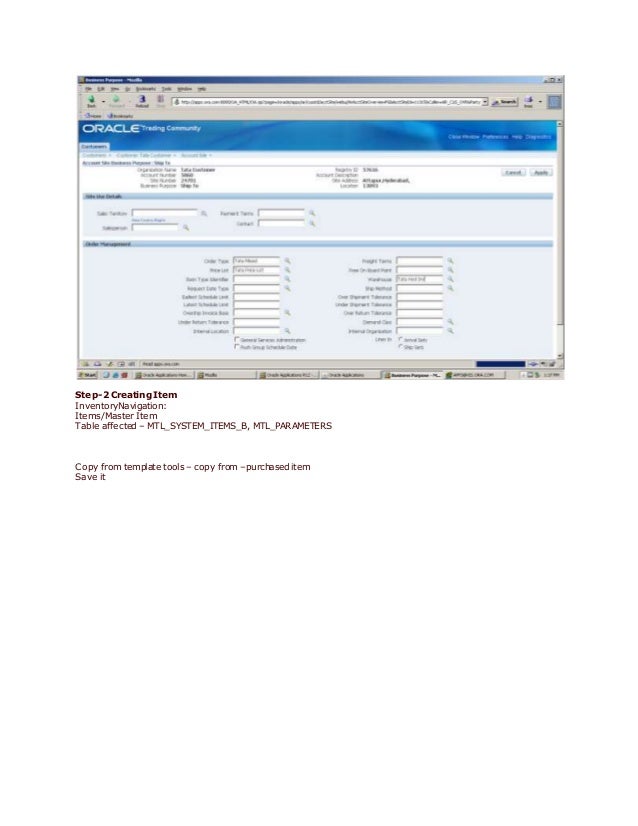Query To Material Transaction Accounts In Oracle Apps
ONT- Order Management. OEORDERLINESALL stores information for all order lines in Oracle Order Management. OEORDERSOURCES Feeder System Names that create orders in Order Management tables. OEORDERHOLDSALL This table stores information of all the orders and lines that are on hold and the link to hold sources and hold releases. Transfer etc. So all these transactions are stored in the table mtlmaterialtransactions. So given a item name, we can always find out in all the transactions that this item has participated in, by using the following query. So all these transactions are called Item Transactions or Material Transactions. It is interesting to see that the item's.

How and when costing will be done for material transactions?Once inventory transactions are completed then records will be inserted into MTLMATERIALTRANSACTIONS table and can be viewed through Material Transaction from. After that ‘Cost Manager’ program will pick these transactions and try to cost them. If eligible records are presents then Cost Manager triggers, ‘Material Cost Transaction Worker’ and once this costing worker process is successfully completed then records will be inserted into MTLTRANSACTIONACCOUNTS & CSTINVDISTRIBUTIONSV and you can view these records from Material Distributions form.This ‘Cost Manager’ and ‘Material Cost Transaction Worker’ are part of Interface Mangers of Inventory. SELECT.
Query To Material Transaction Accounts In Oracle Apps Free
FROM mtlmaterialtransactions WHERE costedflag = 'N';SELECT. FROM mtlmaterialtransactions WHERE costedflag = 'N';The above query will generally result in only few rows, if it all you are getting more rows and the count of rows are increasing then ‘Cost Manager’ must be inactive or they must be any other problem with Interface Mangers.Please do comment if you have any questions and also correct me if I am wrong anywhere. Cost Cutoff DateEven though cost manager is running successfully to get the transactions costed, cost cutoff date must be greater than sysdate or null.